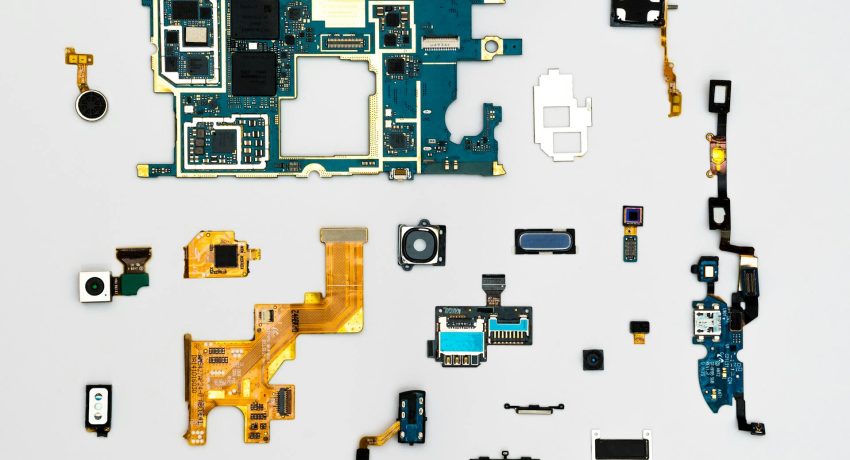TL;DR: AI is transforming the way we work, helping me streamline tasks like writing Jira tickets, summarizing interviews, and crafting strategy docs. While it may replace certain jobs, it’s also creating new opportunities. The key isn’t to fear AI but to embrace it, master it, and use it as a tool to amplify creativity and human insight. Humans with AI will shape the future, not be replaced by it.
This week, I had a conversation with my father-in-law, a Cisco engineer, about AI and its impact on jobs. Among the many questions we discussed, one stood out: Could AI do my job?
The truth is, I already rely on AI to assist me with a variety of tasks:
- Cleaning up and writing Jira tickets for my design and engineering teams.
- Turning bullet points into polished strategy documents.
- Summarizing customer interviews into actionable insights.
- Crafting peer feedback.
- Creating product requirement docs
- Making me sound smarter in my emails than I actually am
- Being a sounding board for the millions of questions I ask it
Am I half Nealey, half AI at this point?
This integration of AI into my workflow has made me faster and more efficient. But it also raises a deeper question: What does the rise of AI mean for our jobs, our industries, and ultimately, our future?
The way I see it, AI isn’t a threat—it’s a tool. Yes, AI will replace some jobs, but I believe it will also create entirely new ones. It’s not about humans vs. AI; it’s about humans with AI. Those who embrace this technology, learn it, and use it to enhance their work will be the ones who thrive.
A Historical Perspective
This isn’t the first time we’ve faced a seismic shift in how we work. Walter Reuther, a labor and civil rights activist from the mid-20th century, once said:
“Either we shall use our new machines and technology to help us create security and dignity in the construction of a brave new world, or the impact of jet propulsion technology upon a huffing and puffing Model T distributive system will dig our economic graves.”
Reuther’s words resonate now more than ever. Technology has always disrupted the workforce, but it has also sparked innovation and created entirely new industries. Here are just a few examples from the past century:
- Telephone Operators → Evolved into IT and Telecommunications Professionals
- Typewriter Manufacturers → Shifted to Computer Engineers
- Film Developers → Transformed into Digital Content Creators
- Lamp Lighters → Became Electricians
- Elevator Operators → Gave way to Automation Technicians
In every case, the introduction of new technology didn’t just replace jobs—it redefined them, creating opportunities that didn’t previously exist.
What AI Means for My Work
At its core, AI is a tool—one that helps me spend less time on repetitive or mundane tasks and more time focusing on what really matters: creativity, strategy, and problem-solving. For example, when AI helps me clean up a Jira ticket or draft a strategy document, it’s not taking over my job—it’s enabling me to do my job better.
This efficiency is critical, especially when balancing multiple priorities, like preparing for the launch of a new product or, on a more personal level, preparing for the arrival of my son. The ability to delegate some of the “heavy lifting” to AI allows me to focus on areas where human insight and creativity are irreplaceable.
Embracing AI, Not Fearing It
Instead of worrying about AI taking over jobs, I believe we should focus on how we can use it to our advantage. Here’s how:
- Embrace Technology: Learn about the AI tools available in your industry. Understanding their capabilities and limitations is the first step to using them effectively.
- Become an Expert: Master the tools that can enhance your work. Those who know how to leverage AI will always be more valuable than those who fear it.
- Add Human Value: Remember, AI can assist with tasks, but it can’t replicate human creativity, emotional intelligence, or critical thinking. These are your superpowers—use them.
The Jobs of Tomorrow
The jobs of the future might not exist yet, but they’re coming. As AI evolves, so will the roles we need to support, manage, and innovate alongside it. Whether it’s designing better algorithms, creating AI ethics guidelines, or finding new ways to integrate AI into workflows, there’s an entire world of opportunities waiting to be explored.
For me, the key takeaway is this: Don’t panic. Adapt. Learn to work with AI, and you’ll not only keep your place in the workforce—you’ll thrive.
Looking Ahead
AI is changing the way we work, but it’s not something to fear. By embracing this technology, we can make ourselves more effective, more creative, and more valuable.
What’s your perspective on AI in the workplace? Have you started integrating it into your workflow, or are you still on the fence? Let me know in the comments—I’d love to hear your thoughts.
Until next time,
Nealey




